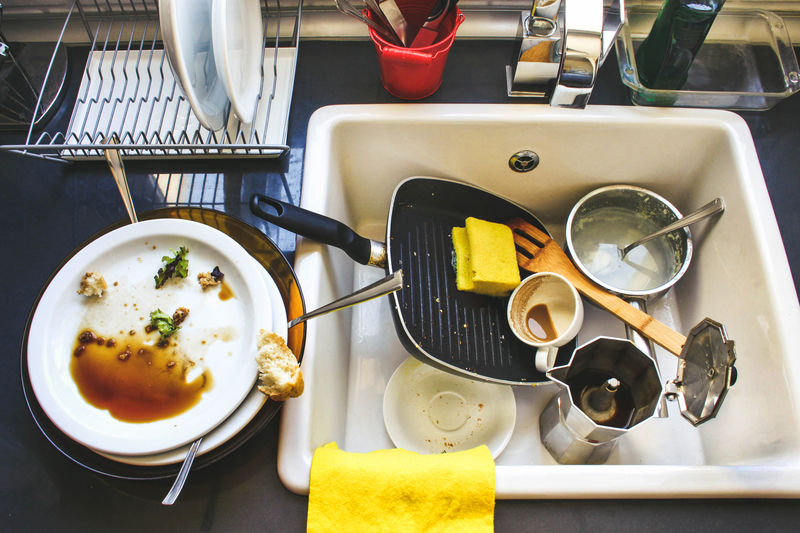Essential Guide to Piano Moving and Reasons to Hire the Pros
If you're a proud piano owner, the thought of moving your cherished instrument might fill you with dread. Whether you own a grand, upright, or baby grand piano, moving such a delicate -- yet tremendously heavy -- item is no simple task. In our essential guide to piano moving, we'll outline everything you need to know to protect your piano, yourself, and your property. Plus, we'll share the top reasons why hiring professional piano movers is a decision you won't regret.

Understanding the Challenges of Piano Moving
Before you start wrapping your piano in blankets and gathering friends to help, it's critical to understand what makes piano moving so complicated. Pianos are not only heavy but also surprisingly fragile. Nearly all pianos are intricate instruments with hundreds of precisely-tuned parts. One slip or jolt during the moving process can cause expensive or irreparable damage.
Weight and Dimensions
- Grand pianos can weigh between 500-1,200 pounds and extend up to nine feet in length.
- Upright pianos often range from 300-600 pounds, with a tall, deep frame that makes gripping and lifting awkward.
- Even baby grands and spinets, though smaller, are very solidly built and heavier than most household furniture.
Delicate Internal Mechanisms
Inside each piano are thousands of moving parts, many of which are finely balanced or made from materials susceptible to damage. Shock, vibration, or sudden temperature changes can knock the keys out of alignment, damage the hammers, break strings, or even crack the soundboard.
Risk to Property and Personal Safety
Beyond harming the piano, improper moving techniques can result in:
- Scratched floors and dented walls
- Broken stairs or damaged door frames
- Serious physical injury to the movers, especially with heavy or awkward lifts
Step-by-Step: How Professional Piano Movers Handle the Job
If you're still thinking about attempting a DIY piano move, take a look at the skilled process employed by professional piano movers. Their expertise and specialized equipment greatly reduce the risks involved.
1. Thorough Assessment and Planning
A reputable piano moving company begins with a detailed assessment:
- Type and model of piano (upright, baby grand, grand, etc.)
- Dimensions and weight
- Current and destination locations, including potential obstacles (stairs, tight corners, narrow doors)
2. Dismantling (if Necessary)
Some pianos, especially grands and baby grands, may require partial disassembly:
- Removal of legs, pedals, and lyres to prevent damage and allow safe passage through doorways
- Expert labeling and wrap of all parts to ensure proper reassembly
3. Protection and Padding
Each surface is carefully protected using:
- Specialized moving blankets and padding
- Thick straps or bands to secure the piano and prevent shifting
- Waterproof covers in case of inclement weather
4. Loading and Transport
Specialized equipment ensures safe transport, including:
- Piano dollies and skid boards
- Custom ramps and lifts
- Securing the piano in a climate-controlled moving van to reduce risk from temperature and humidity fluctuations
5. Reassembly and Tuning
At the destination, the movers:
- Carefully reassemble the piano and ensure stable placement
- Recommend professional tuning after moving, since transportation can affect tonal quality
Top Reasons to Hire Professional Piano Movers
You may wonder if hiring experts is worth the cost. Here are the most important reasons why using professional piano movers is the safest, smartest option:
1. Specialized Expertise
Piano moving companies possess years of training and precisely the right knowledge to handle all kinds of pianos. They are familiar with:
- Optimal lifting techniques for unevenly balanced loads
- Disassembly and reassembly of complex piano structures
- Navigating tricky passages, stairs, and tight corners without incident
2. Correct Equipment
Unlike standard movers, specialized piano moving teams use:
- Heavy-duty piano skids and custom-built dollies
- Professional-grade straps, covers, ramps, and lifts
- Climate-controlled trucks for protection against humidity and temperature swings
3. Insurance Coverage
Professional companies provide insurance protection in the event that accidental damage should occur. DIY moves carry no such safety net, which could lead to expensive repairs or replacement.
4. Protecting Your Piano's Value
A piano is often one of the most valuable items in a home, both financially and sentimentally. Incorrect handling can severely diminish its value. Hiring expert movers ensures your piano arrives in optimal condition at its new location.
5. Saving Time and Reducing Stress
Moving a piano yourself may seem like a way to save money, but the risk, effort, and time involved often outweigh any potential cost savings. Let the professionals handle the stress while you focus on settling into your new space.
DIY Piano Moving: An Honest Assessment
While it can be tempting to attempt a DIY piano move, here are the main risks and issues you might face:
- Personal Injury -- Pianos are extremely heavy, and improper lifting commonly results in back injuries or worse.
- Piano Damage -- Even a small bump can cause permanent interior or exterior harm.
- Property Damage -- Scratches, dings, or holes in the wall are frequent with amateur moves.
- Lack of Tools -- Most households don't have heavy-duty dollies, ramps, or safe straps on hand.
- No Insurance -- You're financially responsible for any and all damages.
- Piano Tuning Issues -- A poorly moved piano will almost always require expensive tuning or repairs.
What to Expect When Hiring a Piano Moving Company
When you hire professional piano movers, you can expect a process like this:
- Initial Consultation: Movers will evaluate your specific piano and the moving route.
- Cost Estimate: You'll receive a detailed quote based on distance, complexity, and piano type.
- Preparation: On moving day, the team arrives with all needed covers, dollies, and gear.
- Careful Execution: Every step is performed with precision and safety in mind.
- Set-Up: Your new space will be checked for levelness and safety before reassembly.
- Post-Move Advice: Reputable movers will recommend letting your piano acclimate before tuning.
Tips for Preparing Your Piano for the Move
- Clean and close: Remove dust and close the keyboard lid to protect the keys.
- Secure loose items: Take away sheet music, lamps, or decorations.
- Plan clear access: Clear hallways and stairs in advance.
- Communicate obstacles: Tell movers about tight spots, steep stairs, or problem areas ahead of time.
- Insurance check: Confirm your piano is covered during the moving process.
How Much Does Hiring Piano Movers Cost?
The cost of professional piano moving varies based on several factors:
- Piano size and weight -- Larger, heavier pianos require more labor and specialized tools.
- Distance -- Local moves are typically cheaper than long-distance moves.
- Complexity -- Stairs, narrow spaces, or difficult access increase the price.
- Special services -- Crating, storage, or temporary removal of fixtures may add to the bill.
On average, expect a range of $200 to $600 for local upright piano moves, or $400 to $1,000 for grand pianos, with higher rates for long distance or exceptionally challenging moves.

Frequently Asked Questions about Piano Moving
-
Can I move a piano myself?
DIY piano moving is not recommended due to the high risk of injury and damage. Always consider your skill, available equipment, and the piano's value. -
Do piano movers also offer storage?
Many professional companies offer climate-controlled piano storage for short- or long-term needs. -
Will moving affect my piano's sound?
Moving can affect a piano's tuning, especially when exposed to jarring or environmental changes. Always schedule a tuning after the move. -
Are upright pianos easier to move?
Uprights are less cumbersome than grands, but they're still heavy and delicate. They require as much care and the right tools for a safe move.
Summary: The Smart Choice for Moving Your Piano
When it comes to piano moving, the risks of DIY far outweigh the minimal savings. Professional piano movers bring the skill, equipment, and peace of mind that comes only from experience. You'll protect both your instrument and your home -- and best of all, enjoy your piano for many years wherever you move.
If your prized piano is facing a move, don't take chances. Invest in expert piano moving services -- your music will thank you!



